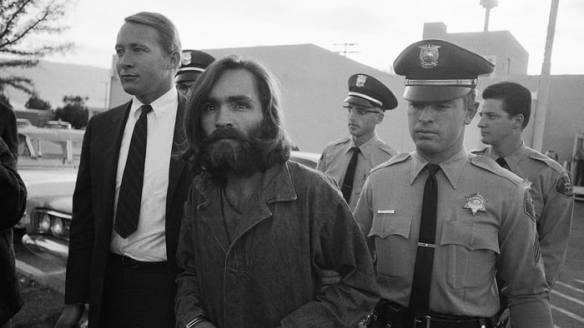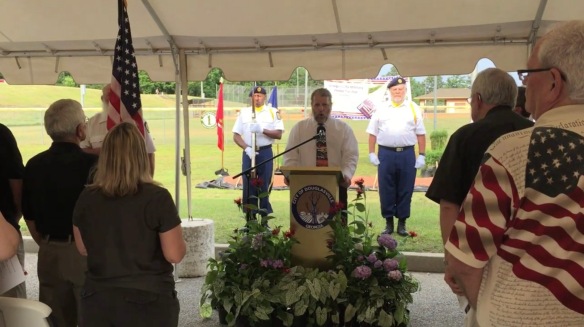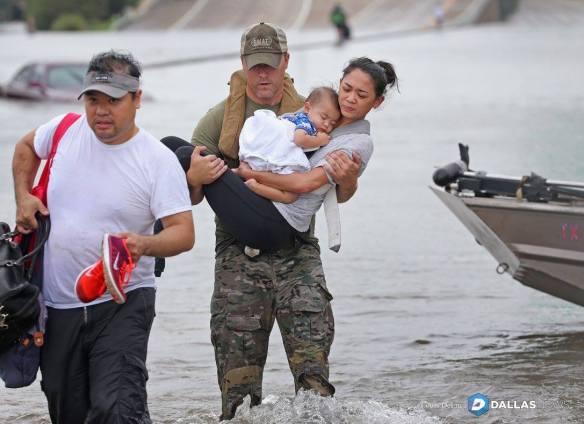 The news today along with all the fuss in social media can be more than overwhelming. Emotions seem to be ruling the day on all sides of every issue. We are becoming more polarized with each and every outburst. I have my opinions on our current leadership in this country, but I am doing my best to restrain from adding to the clatter. When I look at the world and see so much disagreement and so much anger I have to ask the question that might help me to rise above the noise to hear the answer: What does God want?
The news today along with all the fuss in social media can be more than overwhelming. Emotions seem to be ruling the day on all sides of every issue. We are becoming more polarized with each and every outburst. I have my opinions on our current leadership in this country, but I am doing my best to restrain from adding to the clatter. When I look at the world and see so much disagreement and so much anger I have to ask the question that might help me to rise above the noise to hear the answer: What does God want?
As a person who identifies as Christian I feel I am required to always return to the Gospel when these difficult questions arise. For me there always seems to be two responses to the Gospel that play out in Christian society. Here in the industrialized west the dominant response seems to always focus on personal salvation. The evangelism that surrounds that narrative is one of celebration of God’s gift of salvation to be shared with as many people as you can. To go out and spread the Good News, to baptize, make disciples, and teach as commanded in Matthew 28:19-20, but I have a problem with how this command seems to play out in our culture.
We have somehow turned this into a story about ourselves. We take our response to John 3:16 and make it about us. This is our first mistake. From that point of view we reduce everything God has been doing to bring His Kingdom to earth and all creation to a simple story about ourselves, and then we try to peddle it to others as a way for each of them to have, and subsequently sell, a similar experience. With each “conversion” we continue to perpetuate a personal religious epiphany based on the perspective of the individual rather than the greater plan of God’s salvation story. It’s a very post enlightenment, or dare I say, American way to respond to the Good News in Christ. To be sure, personal salvation is real, but at best it is only half of the story, and unfortunately it is often the only story I see playing out in western Christianity.
Then there is the other way, or should I say the rest of the way to respond to the Gospel. We have clear marching orders, and these orders are not something we do to bring salvation upon ourselves, but something we are compelled to do in response to the Grace we do not deserve. In John 21 Jesus hammers Peter over the head with one demand: “Feed my sheep.” Three times, no matter how much Peter tries to convince Jesus how much he loves him he is hit with the same command. It is Jesus’ way of saying, “So you love me? Then show me what that looks like.”
And let’s be clear, when Jesus says, “Feed my sheep” he is not simply saying go baptize and teach them to obey. He means FEED MY LAMBS, TEND MY SHEEP, FEED MY SHEEP. If there is a prime directive in the Gospel it can be found right here. Is it any wonder that the subhead above Matthew 25:31-46, where Jesus admonishes us to “do for the least of these” is titled “The Judgment of Nations?” To emphasize:
“For I was hungry and you gave me food, I was thirsty and you gave me something to drink, I was a stranger and you welcomed me, I was naked and you gave me clothing, I was sick and you took care of me, I was in prison and you visited me.”
Jesus gives us the Greatest Commandment to love God with our whole heart and to love our neighbors as ourselves in more than one place in the Gospel, and in Luke 10:30-37 he makes it clear who that neighbor is. As if it wasn’t clear enough in Matthew 25.
Nowhere are we asked to make a decision about who we think deserves our help. We are not in any position to decide who is worthy of God’s Grace, and we are in no position to measure how much. Matthew 20 makes it clear, particularly with these verses (14-16):
“Take what belongs to you and go; I choose to give to this last the same as I give to you. Am I not allowed to do what I choose with what belongs to me? Or are you envious because I am generous?’ So the last will be first, and the first will be last.”
Allow me to emphasis once more; we are not called by the Gospel to do this for our own sake, but for righteousness’ sake (Matthew 5:6-10).
So my response to all this clatter in the media is this: I will leave the arguments up to those who are lost in the emotions of the world and I will do my best to look past those things to better see where the real needs are in our world. I will choose to act in mercy towards anyone who is in need of it, regardless of who or what they are. I will not try and decide whether a person should deserve my service or ministry because they are not of my faith, or race, or immigrant status, or my politics, or my sexual orientation. If they need an act of mercy or kindness they will get it from me without conditions and without debt. I will take my chances on love, and I will take my chances on anyone who has been pushed to the margins of our society due to public opinion, or prejudice.
The Gospel has compelled me to act out in response to the Cross and I am confident in what “doing right” is in this case. I am ready to make my case for the hope that is in me (1 Peter 3:13-17). While we are arguing about our politicians and all the political disparity there are people suffering from illness, isolation, in prisons, and despair in more ways than we can imagine. To this end I will find and side with these victims in our society and I will no longer identify myself politically, but only as a servant of the Gospel. For me there is no other identity for those who truly understand what the Gospel calls us to be.
Matthew 25:31-46
John 21:15-19
Luke 10:30-37
Mark 12:28-31
Matthew 5:6-10
I Peter 3:13-17
[Photo Credit: Sheep Grazing In A Pasture, Derbyshire, by John Doornkamp]

 By now we all know that Charles Manson passed away at the age of 83 on November 19th. My initial reaction, which I imagine was shared by many others, was to simply turn my head and think to myself, “Good riddance.” In social media, I even posted an animated gif of the famous scene from the movie “Tombstone” when Powers Booth’s character looks up at Wyatt Earp as Earp is leaving town and says, “Well (long pause) bye.” It was my attempt at both a humorous and classically passive aggressive farewell.
By now we all know that Charles Manson passed away at the age of 83 on November 19th. My initial reaction, which I imagine was shared by many others, was to simply turn my head and think to myself, “Good riddance.” In social media, I even posted an animated gif of the famous scene from the movie “Tombstone” when Powers Booth’s character looks up at Wyatt Earp as Earp is leaving town and says, “Well (long pause) bye.” It was my attempt at both a humorous and classically passive aggressive farewell. In 1998 I worked in the Atlanta office for a large New York ad agency. We had a sexual harasser in the agency. He spent a good bit of his time harassing two women in particular. They were both copywriters and creative partners of mine. They came to me quite often to tell me about his latest shenanigans. Each time I would encourage them to report him and that I would have their backs. By this time it had been going on for at least four years.
In 1998 I worked in the Atlanta office for a large New York ad agency. We had a sexual harasser in the agency. He spent a good bit of his time harassing two women in particular. They were both copywriters and creative partners of mine. They came to me quite often to tell me about his latest shenanigans. Each time I would encourage them to report him and that I would have their backs. By this time it had been going on for at least four years.
 First, let me make something clear, I have terrible prayer habits. In fact, “habits” really isn’t the right word unless you consider habitually not praying on a regular basis a habit. Well, that’s me.
First, let me make something clear, I have terrible prayer habits. In fact, “habits” really isn’t the right word unless you consider habitually not praying on a regular basis a habit. Well, that’s me.

